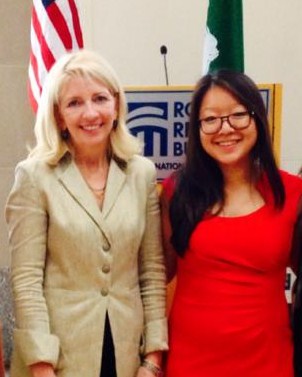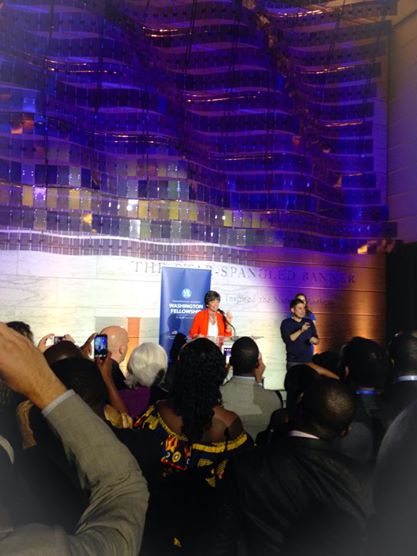History was made this summer in Washington, D.C. In early August, President Obama hosted 51 official delegations from the African continent for the U.S.-Africa Leaders Summit. Among the cast of participants were heads of state, foreign ministers, trade ministers, first ladies, cabinet officials, ambassadors, diplomats, CEOs, visionaries, and, at the bottom of the ladder, me, the intern.
As a student in the Wilson School, I spend my days (and nights) studying the historical and theoretical underpinnings of public policy, specifically in global development. Even though I've taken seminars in politics and economics, my aspiration to become a policymaker requires, well, experience in policymaking. With the help of the Wilson School, I was able to intern this summer in the Economic Policy Staff of the Bureau of African Affairs in the U.S. Department of State. I was nervous—I had taken some courses in economics and development, but I had never traveled to anywhere in the African continent, nor did I know anything about trade, which was a large focus area for the office. But I was also excited. I wanted to test the years of seminars I had attended, the pages of research papers I had written. I wanted to practice my French. And, of course, I wanted to know if a career in the State Department was really a fit for me.
As an intern in the Economic Policy Staff, I was able to participate in the organization, planning and execution of the largest U.S.-hosted summit in history. Our small staff had a stake in almost every summit event, covering issues ranging from trade negotiations and foreign direct investment, to wildlife trafficking, extractive industries, energy policy, and female economic empowerment. When I arrived in June, the office, freshly staffed with new interns, was already buzzing in anticipation. I was given the choice of focusing on an issue area that most interested me, and for the next seven weeks I focused my attention on female economic empowerment and public-private partnerships.

Although we often think of interns as skilled photocopiers and coffee-retrievers, the State Department had no use for these skills (I, however, did need a lot of coffee). My internship wasn't just a front-row ticket to the policymaking process— I was, figuratively, on stage. I drafted memos and attended staff meetings. I learned how to navigate the department's protocol, as well as its labyrinthine hallways. My pumps got a workout as I raced to meetings, briefings, roundtables, receptions and forums across the capital. I assisted in programming for the African Women's Entrepreneurship Program, an initiative that supports African Women CEOs in their enterprises, and during the three days of the summit I had the opportunity to plan and staff numerous events, including a business-to-business marketplace, where the CEOs had the opportunity to showcase their products to U.S. companies, and the announcement of a $1 million public-private partnership to support female economic empowerment on the continent.

In the end, my hopes for the internship were beyond fulfilled. Not only was I able to work on substantive policy during my internship, but I also was able to see it fulfilled and realized during the Leaders Summit. Inspired and determined as I prepare to return to campus for my senior year, and as the specter of post-graduation looms ahead, my belief in the impact and possibilities of public service have been renewed.






